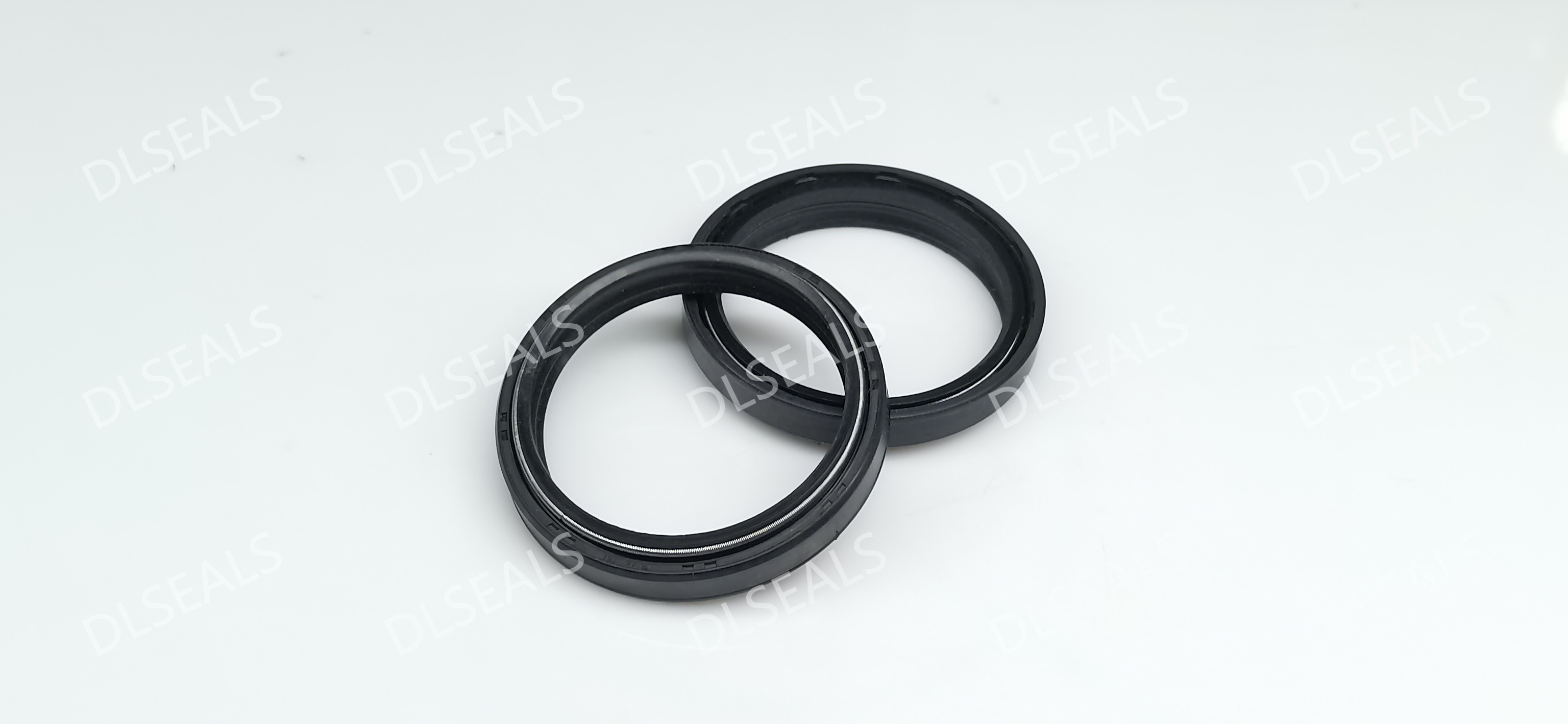News
A2024-11-25

1. What is a skeleton oil seal?
Skeleton oil seal is a typical representative of oil seal, which consists of a metal skeleton and a rubber seal body. It is widely used in bearing seals of various machines to prevent liquid (such as lubricating oil) leakage and external foreign matter intrusion. Skeleton oil seals play an important role in the automotive, manufacturing, energy and other industries with their sturdy design and excellent sealing performance.
2. What are the main application areas of skeleton oil seals?
The application areas of skeleton oil seals are very wide, mainly including:
Automotive industry: used in engines, gearboxes and other parts to prevent oil leakage.
Manufacturing industry: used in various types of machinery, such as pumps, hydraulic systems, etc.
Oil and gas industry: used to seal high-pressure valves and pipelines.
3. What are the common faults of skeleton oil seals?
Common faults of skeleton oil seals mainly include oil leakage, overheating and abnormal noise. Among them, oil leakage is the most common fault, which may be caused by a variety of reasons, such as oil seal defects, poor assembly, lip wear, poor compatibility with the working medium, etc.
4. How to prevent and deal with oil leakage of skeleton oil seals?
Methods for preventing and dealing with oil leakage of skeleton oil seals include:
Regularly check the oil seal parts, and promptly find and replace defective or worn oil seals.
Ensure that the mating surface between the oil seal and the main shaft is flat and free of scratches. If there are scratches and defects, they should be replaced.
Check whether the return oil is unobstructed to avoid excessive crankcase pressure causing oil leakage or falling off of the oil seal.
Use appropriate grease and replace it regularly to keep it clean.
5. What is the production process of skeleton oil seals?
The production process of skeleton oil seals mainly includes rubber preparation, mold preparation, selection of skeletons and springs, product vulcanization molding and subsequent processing technology. This process requires strict control of the quality of each link to ensure the performance of the final product.
6. How to choose a suitable skeleton oil seal?
When choosing a suitable skeleton oil seal, the following factors need to be considered:
Working conditions: including temperature, pressure, speed, etc., to ensure that the oil seal can work normally under these conditions.
Sealing medium: Different media may require oil seals of different materials.
Equipment type: Select the appropriate oil seal model and specification according to the type and purpose of the equipment.
7. How long is the life of the skeleton oil seal?
The life of the skeleton oil seal depends on many factors, such as working conditions, material quality, assembly quality, etc. Generally speaking, the skeleton oil seal can have a long service life under correct use and maintenance. However, if there is a fault such as oil leakage, the oil seal should be checked and replaced in time to avoid more serious damage to the equipment.
8. How to improve the service life of the skeleton oil seal?
Methods to improve the service life of the skeleton oil seal include:
Select high-quality materials and manufacturing processes to ensure the initial performance of the oil seal.
Strictly abide by the assembly specifications to ensure that the oil seal is installed correctly.
Regularly check and maintain the oil seal to detect and deal with potential problems in time.
Optimize working conditions, such as lowering temperature and reducing pressure fluctuations, to reduce the workload of the oil seal.
[DLSEALS kindly Reminder] Sealing issues? Turn to DLSEALS! As a sealing component manufacturer, we specialize in customizing sealing components, providing a full range of services from design, research and development, production, testing, and more. If you have more information you'd like to know, feel free to contact us directly. DLSEALS's product experts are dedicated to serving you!